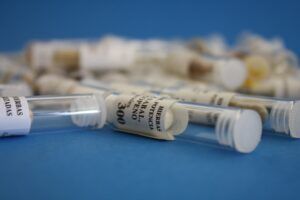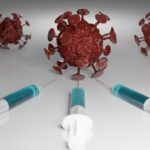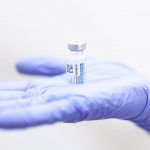EMA has received an application for conditional marketing authorisation (CMA) for a COVID-19 vaccine developed by AstraZeneca and Oxford University. The assessment of the vaccine, known as COVID-19 Vaccine AstraZeneca, will proceed under an accelerated timeline.
An opinion on the marketing authorisation could be issued by 29 January during the meeting of EMA’s scientific committee for human medicines (CHMP), provided that the data submitted on the quality, safety and efficacy of the vaccine are sufficiently robust and complete and that any additional information required to complete the assessment is promptly submitted.
Such a short timeframe for evaluation is only possible because EMA has already reviewed some data on the vaccine during a rolling review. During this phase, EMA assessed data from laboratory studies (non-clinical data), data on the vaccine’s quality (on its ingredients and the way it is manufactured) and some evidence on safety and efficacy from a pooled analysis of interim clinical data from four ongoing clinical trials in the United Kingdom, Brazil and South Africa. Additional scientific information on issues related to quality, safety and efficacy of the vaccine was also provided by the company at the request of CHMP and is currently being assessed.
What may happen next?
If EMA concludes that the benefits of the vaccine outweigh its risks in protecting against COVID‑19, it will recommend granting a conditional marketing authorisation. The European Commission will then fast-track its decision-making process with a view to granting a conditional marketing authorisation valid in all EU and EEA Member States within days.
As for all medicines, EU authorities continuously collect and review new information on medicines once they are on the market and take action when needed. In line with the EU safety monitoring plan for COVID-19 vaccines, monitoring will take place more frequently and will include activities that apply specifically to COVID-19 vaccines. Companies for example will provide monthly safety reports in addition to the regular updates required by the legislation, and conduct studies to monitor the safety and effectiveness of COVID-19 vaccines after their authorisation.
These measures will allow regulators to swiftly assess data emerging from a range of different sources and take appropriate regulatory action to protect public health if needed.
How is the vaccine expected to work?
COVID-19 Vaccine AstraZeneca is expected to work by preparing the body to defend itself against infection with the coronavirus SARS-CoV-2. This virus uses proteins on its outer surface, called spike proteins, to enter the body’s cells and cause disease.
COVID-19 Vaccine AstraZeneca is made up of another virus (of the adenovirus family) that has been modified to contain the gene for making the SARS-CoV-2 spike protein. The adenovirus itself cannot reproduce and does not cause disease. Once it has been given, the vaccine delivers the SARS-CoV-2 gene into cells in the body. The cells will use the gene to produce the spike protein. The person’s immune system will treat this spike protein as foreign and produce natural defences − antibodies and T cells − against this protein. If, later on, the vaccinated person comes into contact with SARS-CoV-2, the immune system will recognise the virus and be prepared to attack it: antibodies and T cells can work together to kill the virus, prevent its entry into the body’s cells and destroy infected cells, thus helping to protect against COVID-19.







Leave a Reply